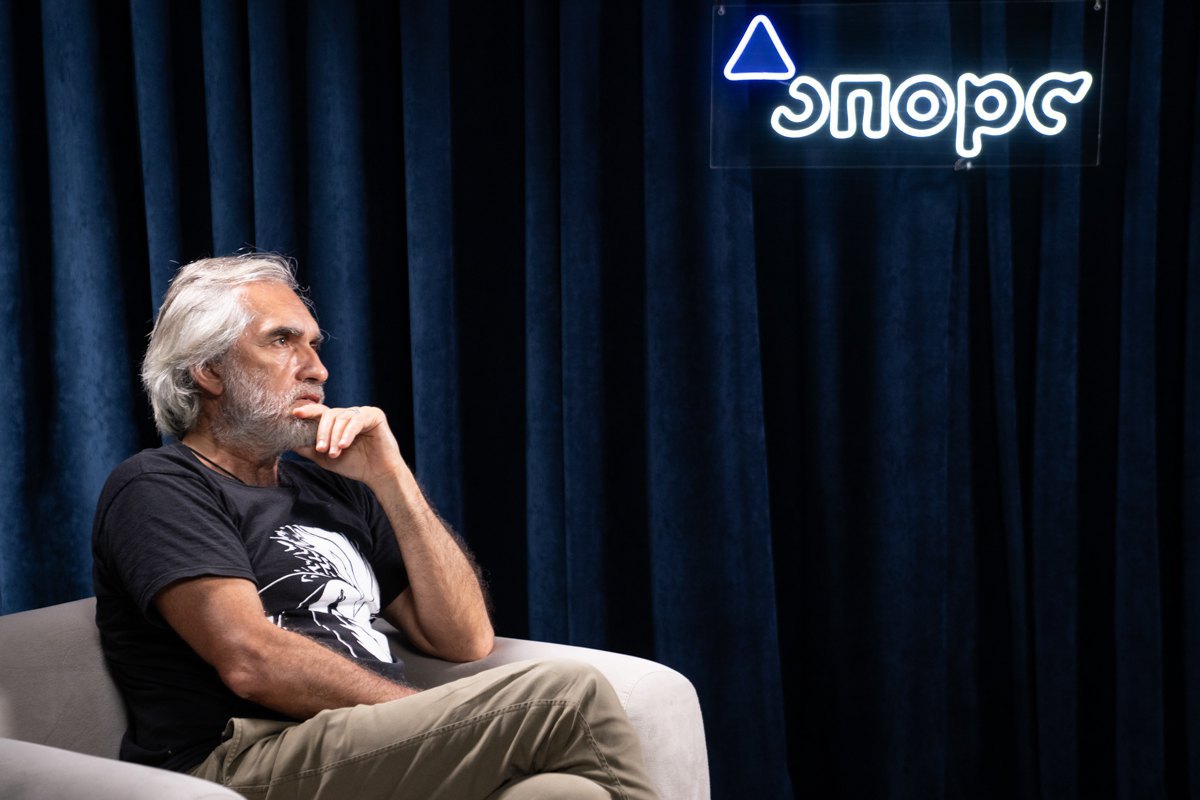
"There is a general consensus that we have entered a decade of wars and are now in the middle of that decade."
You have repeatedly expressed the opinion that it is more natural for humanity to live in a state of war. How can we explain the inability of human nature to reach an understanding in a peaceful manner, especially when it comes to the modern world?
Many people believe that humans are naturally good, sort of naïve, peaceful savages. It is civilisation that corrupts them. In fact, this is not the case. If left in our natural state, we somehow end up fighting. We do not know why, we just accept it as a fact.
A project that describes in detail all the major conflicts of the last two hundred years shows that there has not been a single year without war, and these are two hundred years of the greatest achievements of human progress and civilisation. There should be [confirmed] an opinion that the higher the level of civilisation, the fewer wars there are, but the opposite is true. There is something to it. We cannot explain it, we can only acknowledge it and live with it.
Your thesis that history does not repeat itself, but rhymes, resonates. Is there a feeling that we are now living in a period of rhyming with the beginning of the twentieth century?
My opinion, and it is not original, as much has already been said about this, is that we are now in the 1930s, a time of great economic and political crisis. I would say that symbolically we are in 1938. And the question is, how will we cross the threshold of 1939, when this conflict, which is still hybrid and cold, does not turn into a hot war with very undesirable, unexpected and destructive consequences? Will we be able to get out of this spiral and return to the 1930s? This is a question to which no one has an answer yet.
There is a general consensus that we have entered a decade of wars and are now in the middle of that decade. The Russian-Ukrainian war is very symbolic because it is the first truly large-scale war that demonstrates this.
I have a bleak prediction, which I made at the very beginning of the war [and for which I am very "loved"], that this war will be a long one and we must prepare ourselves. This does not mean that we will not survive this war. We can survive, of course, we must try, we can even win, but we must have a different historical perspective.
We are constantly hoping for a miracle: Arestovich promises that the war will last no more than a couple of weeks, or a month at most, and we are waiting for Trump. I understand these feelings: it is difficult for people to live in constant fear, but we must be able to prepare ourselves for it.
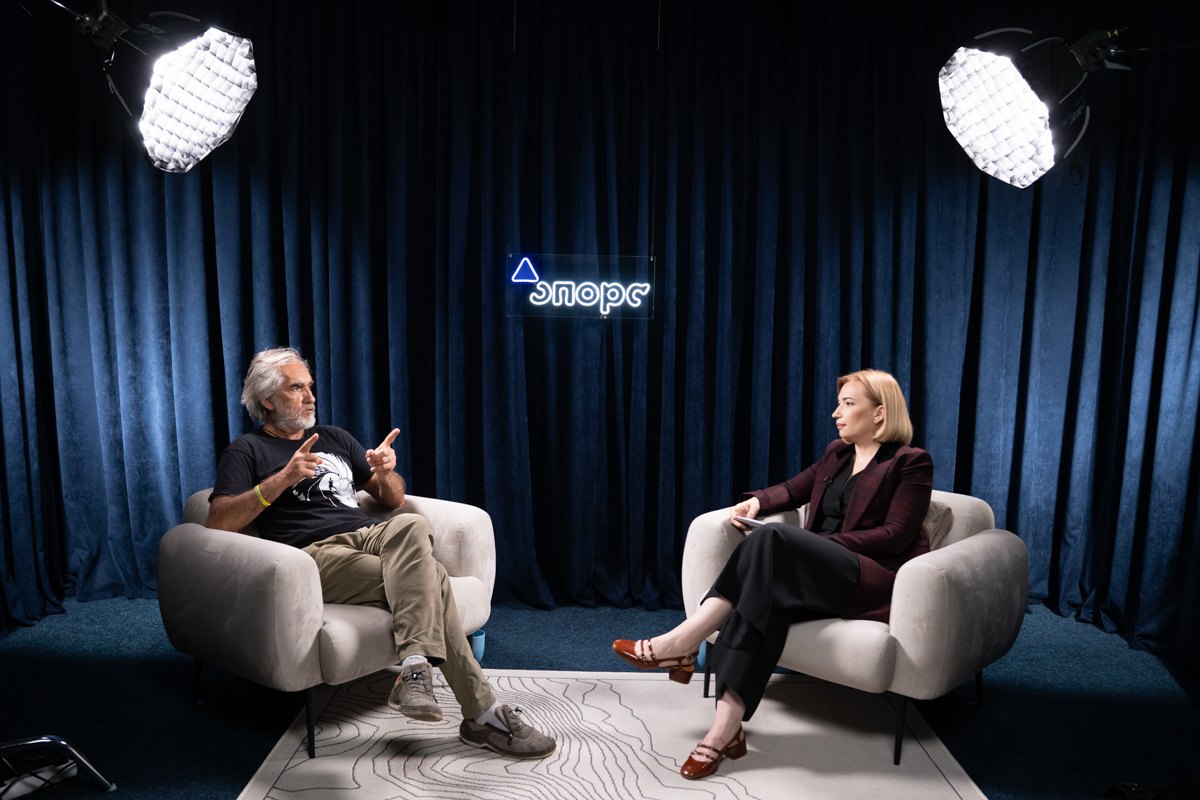
"Russia itself cannot change its system. It constantly reproduces it."
Many liberal Russians at international conferences push the idea that if Russia is punished now, from the confiscation of frozen assets to the tribunal and condemnation of the Russian Federation's leadership, Russian society will feel unjustly punished, which could lead to an even greater war. Is the comparison with World War I, which claimed up to 20 million lives, appropriate here, given that many historians agree that the measures taken against Germany after the war enabled Hitler to come to power, which was what society wanted?
Perhaps it does. It is the most relevant comparison at present, the First World War. In many respects, it is very similar. In particular, because we do not have a breakthrough on the front, the front is slow.
For some reason, I reread an article by Yuriy Afanasyev, a historian who was the leading voice of the Russian liberal opposition. He was very vocal during the Yeltsin era in the late 1980s. He hoped that Russia would become liberal. He died ten years ago, but before his death he wrote an article entitled "Are we not slaves?" It is the cry of a wounded soul, of a man who had hoped for something all his life and lived to see almost all his hopes dashed. He says that this is what happens with Russia anyway, regardless of whether Russians are punished or not. Russia, a profound nation, from time to time throws out someone like Stalin, or Putin, or another sociopath.
In Russia, the choice is very narrow: either empire or freedom. And the trouble is that most of the intelligentsia chooses empire because they believe it is the only tool that can change the world of Russia. He says it is a tragedy that even very bright minds, great artists, and good historians choose empire.
In order to punish Russia, you have to defeat it. I don't see how Russia can be defeated, at least in the near future. Even if Russia is punished, I do not see that this will be anything fundamentally new. Something fundamentally new can only happen in one case — if the Russian political system changes. This requires a great deal of effort and external pressure, because Russia itself cannot change its system. It constantly reproduces it.
The system is based on an autocrat: a father, a Moscow tsar, a Russian emperor, a general secretary or a president who rules the country almost single-handedly. Power and wealth depend on how close you are to this ruler. You don't even have a people, you have subjects. In essence, this government behaves like an occupying force towards its own people, but the paradox is that the people like being occupied. This cycle must be broken.
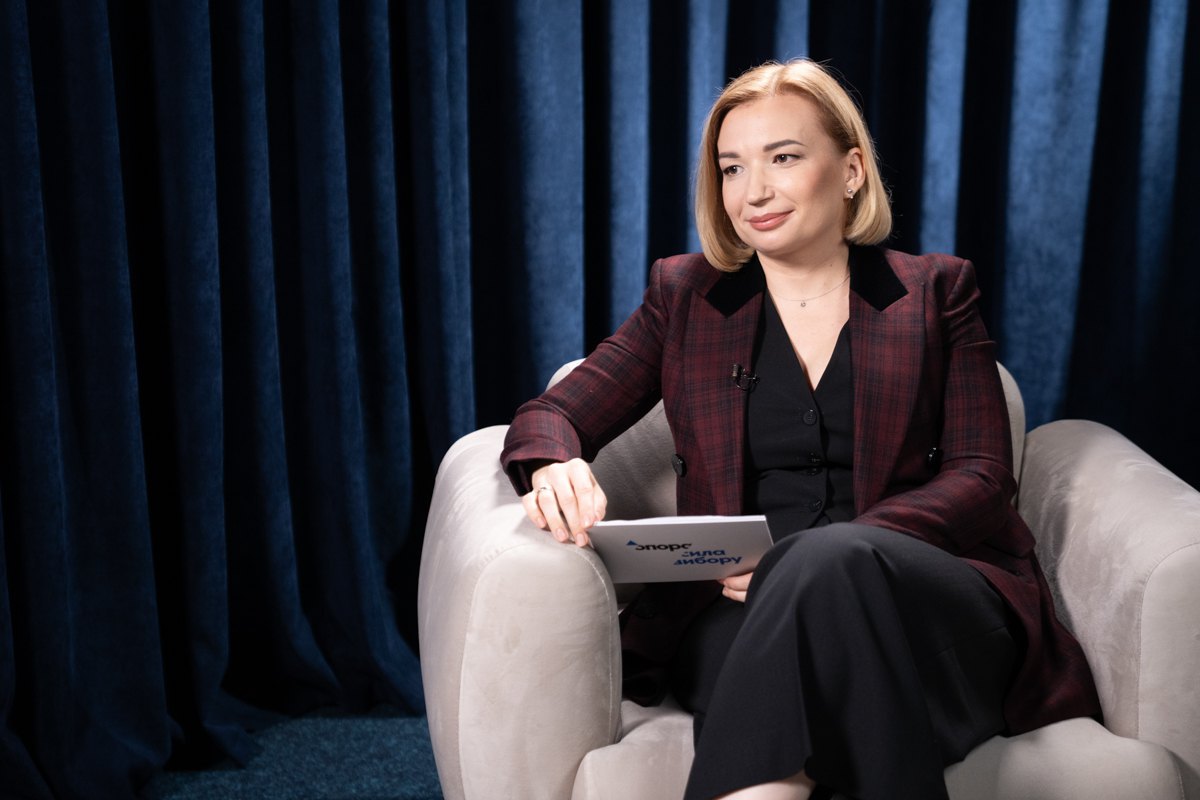
How can one describe the nature of Russian society, which accepts an imperial system of power, bloodthirsty and aimed at conquering territories?
Russia is trying to undertake projects that are beyond its strength and capabilities. Russia has never been an economic power, even during the Soviet era. It is trying to create projects for world conquest and colonisation without having a sufficient economic base. Figuratively speaking, it is a large but backward empire. Therefore, we need a justification for why we are backward. Because we have a special historical mission. It is easy to sell the idea to the people that "you have to endure, but we are very great." It is human nature, but it exists, and if it is driven by the machine (the state — Ed.) and culture, it works.
My favourite history book is Violence and Social Order by Nobel laureate Douglas North, which he wrote with a group of authors. He shows that the success of a society depends on how well it copes with violence. The problem in Russia is that it cannot cope with violence. We have violence reduced to such a level that you do not feel it in your daily life. In Russia, as Russians themselves say, violence is something that accompanies you from kindergarten to the grave; it is a certain norm. That is the problem. How is this done? Power is fragmented, and the instruments that embody violence are fragmented.
Let's imagine that Russia adopts provisions in its Constitution stating that no FSB employee has the right to be president of Russia. That would be something.
I am convinced that all these things are triggered by political reforms. Russia has never been able to carry out these political reforms.
The biggest mistake of the West, and to some extent ours as well, was that in the 1990s there was a feeling that if Russia developed economically, it would also become a democracy politically, but it turned out differently.
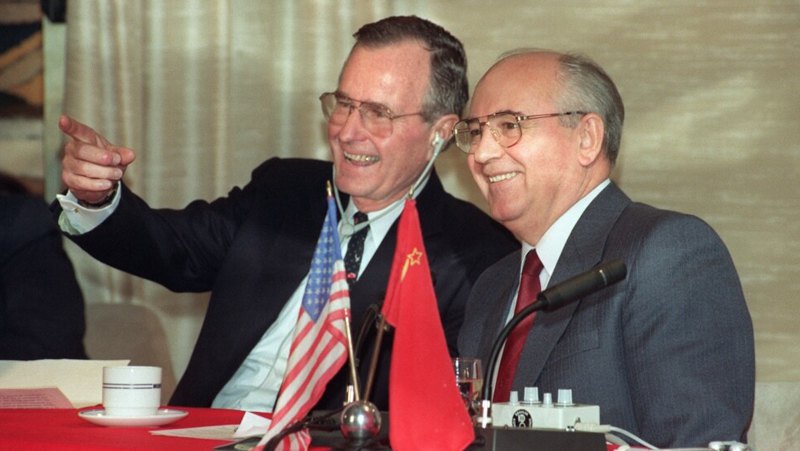
"Democracy promotes economic growth in the Western world. Period. Outside of that world, this formula does not work."
In today's world, we see examples that refute the thesis that economic development promotes democratisation. What is the real connection?
Democracy promotes economic growth in the Western world. Period. Outside of that world, this formula does not work. When we take the most advanced Western world, which we aspire to emulate, and try to apply this formula to the whole world, it does not work. Because the world is different.
There is a certain connection between the economy and politics, something that links the two gears together, allowing them to work and not slip. This is culture, values, history. There must be a very important factor that will work. China has it, Japan, South Korea, Singapore, Taiwan, they call it the "X factor" or the "Confucian effect". Russia is not a Confucian country, Russia is Orthodox.
When Putin talks about the ‘Russian world’, he is right; the ‘Russian world’ exists, and it more or less coincides with the Orthodox world. Moreover, the "Russian world" is not only Russia, Belarus, and Ukraine. It also includes Moldova, Romania, Bulgaria, and Greece. If you look at human development indicators, you will see that the cluster of Orthodox countries is always separate, and it perceives itself as such. Values matter, culture matters.
If we agree that there are different clusters and that different clusters are affected differently, then we can say that this is a form of action for the Western cluster, and that is for the Eastern cluster.
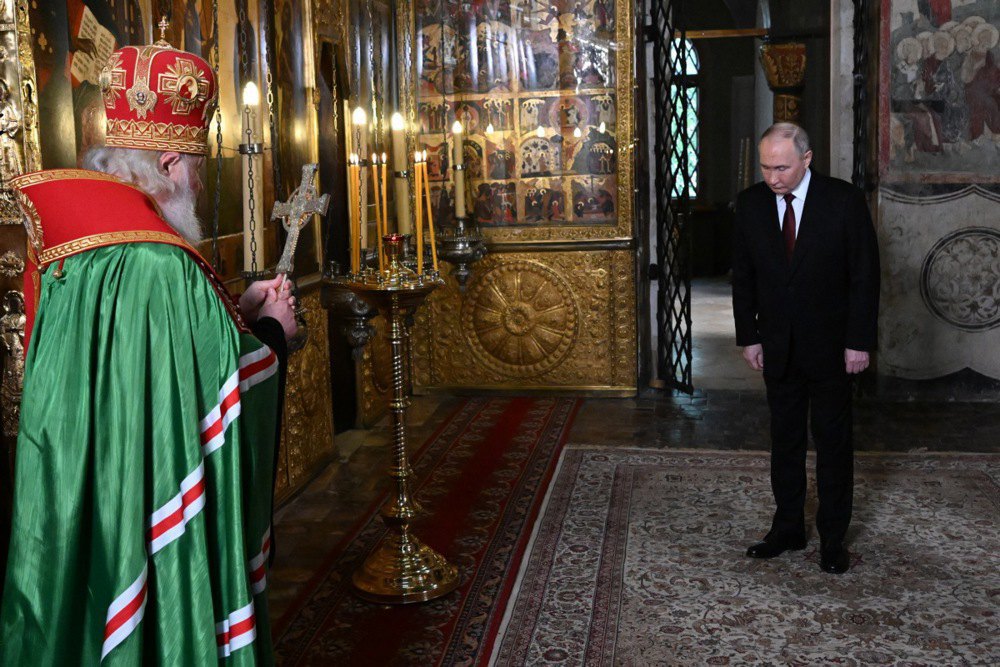
But hasn't Russia already chosen not to go with the West?
It considered it, but was unable to do so because it would require profound cultural change. If this proves difficult, the easier path is chosen. It is easier not to change anything.
"Ukraine is interesting in that it is both Orthodox and non-Orthodox... We belonged to different worlds at the same time."
How is Ukrainian society different?
Ukraine is interesting in that it is both Orthodox and non-Orthodox, both "Russian" and “not Russian". It stands out from this like a sore thumb. It always stands out from this.
We belonged to different worlds at the same time. We have different traditions, different cultures. And the measure: there is a third agent besides the state and the church — civil society. If there is no civil society or if it is very weak, then enrichment is unlikely to succeed. Who works? Who gets rich? A middle class emerges, which is the promoter of change in the country. If it does not exist, or if it lacks initiative or also wants an empire, then you will not have change in the country.
Is there no demand for imperialism in Ukraine? Do we have no territorial claims?
We have had attempts. The ideology of the OUN. In the 1930s, they talked about Ukraine as a future empire. It would mean a very large territory where there were Ukrainian settlements, for which it was important to replace Moscow with Kyiv. This may be perceived as a curiosity, a cabinet of curiosities, but these plans existed.
People forget about this now, but Dmytro Korchynskyy once said that Ukrainian and Russian nationalists should form an alliance to move the centre of this great nationalism from Moscow to Kyiv.
Of course, there was the federal idea of the Cyril and Methodius Society. It was democratic. Shevchenko and Kostomarov said that Ukraine would be the centre of the world, but a republican one, like the United States of America or the Athenian and Greek republics, with no hint of an empire.
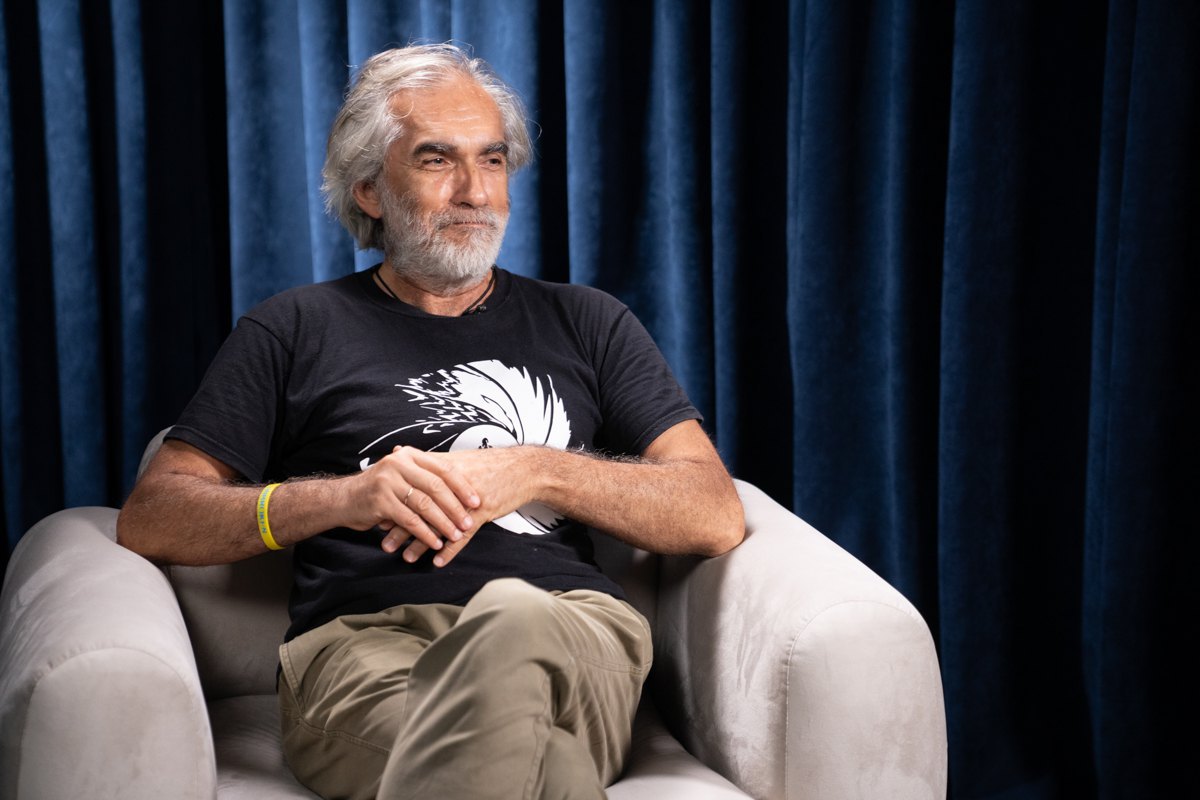
Ukrainians occasionally thought in such terms, but it did not catch on, which is very important to me.
Back in the 1990s, Nataliya Yakovenko and I wrote essays on the history of Ukraine and participated in a project (a project to re-examine the histories of the peoples who emerged from the Polish-Lithuanian Commonwealth — Ed.) involving a group of Polish, Belarusian and Lithuanian historians. We hardly argued with the Poles. The most heated disputes, even shouting matches, were between Belarusian and Lithuanian historians. I was struck by the aggressiveness of the Belarusians as a way of defending their territories. I don't know what this is due to, perhaps a feeling of weakness. An inability to assess oneself realistically is often compensated for by huge projects.
We remember how five years ago the Belarusian middle class opposed Lukashenko, but it was important for them to show that they were not Maydan. It's crazy, self-destructive thing. Imagine what would be happening in the world today if those Belarusian protests had succeeded five years ago? It's a missed opportunity. I will not draw conclusions about the Belarusian opposition, lest they hear and take offence, but something is wrong with it. There is nothing seriously wrong with the Russian opposition, but something is wrong with the Belarusian opposition. Perhaps it is a feeling of weakness.
"The key change in Putin's way of thinking was the Maydan in 2004. For him, it was the biggest defeat of his life."
Is the war in Ukraine caused by a feeling of weakness on the Russian side? Even before the 2007 Munich Security Conference, Putin said that the collapse of the Soviet Union was the greatest tragedy of the 20th century. Could this trauma alone have led to war?
Biographers say that the key change in Putin's way of thinking was the 2004 Maydan. For him, it was the biggest defeat of his life and still is. Obviously, 2014 added to that. To a certain extent, he is taking revenge on Ukraine, and this must be understood. He has the mindset of a kid. "The kid was let down," as they say, and this humiliation cannot be overlooked.
We have the same way of thinking, that we want to return to the status of a great power.
In 1991, when Ukraine was about to declare its independence, the Russian opposition, led by Yeltsin, had a discussion about what to do with Ukraine. They decided to let it go because they believed that Ukrainians were a non-existent nation, so they gave them a project that would fail sooner or later, and Ukraine would return. They never agreed to the existence of an independent Ukraine.
I always emphasise that we must remember that Putin began his career among Russian liberals. We know that Sobchak and all the others were his teachers, and we know what they said. One of those who drew Putin's attention to the Ukrainian question the most was Aleksandr Voloshin, the head of his administration, a 100% Russian liberal who speaks English perfectly and sprinkles English words into Russian, but, as Mikhail Zygar writes, when he talks about Ukraine, he switches to Russian swear words.
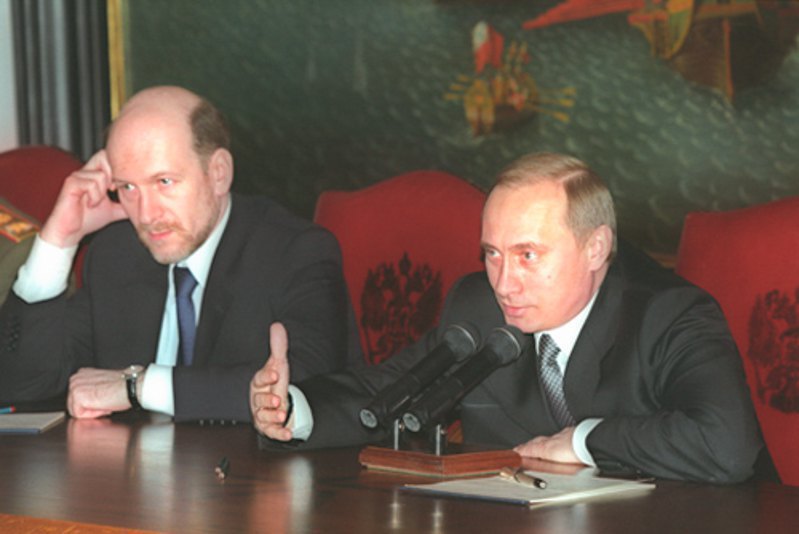
The Russian elite never agreed to Ukraine's existence as a separate state. And it was very important that Ukraine did not return to Russia. Thirty years have passed, and Ukraine has not collapsed; it still exists. Obviously, for Putin, it was "now or never." Time was passing, and it was necessary to return. In my opinion, this is the last attempt.
Is it possible to revise post-war history after the defeat of the Russian Federation, which for many years imposed its propaganda narratives on the dehumanisation of Ukrainians and tried to rewrite history?
I do not rule it out, and I think we should strive for it, because we hardly want to have such a bad neighbour, a threatening predator, all the time. We need to do something about it. As was done with Germany after the war. And something needs to be done with Russia to finally normalise relations. I do not rule out such a possibility, but I do not see it yet.
In Germany, the re-evaluation of anti-human, anti-humanitarian power and ideology took place in the context of pacification, denazification and trials. How valuable is this experience today?
I think we are exaggerating its role, because there was no lustration as such; only the top leaders were punished. Most of the Nazis remained, not in power, but in the administration, and this is well known. Adenauer, who was himself an anti-fascist, consciously pursued this course, and the Americans understood this, because without it Germany would have collapsed as an administrative apparatus.
What we are talking about happened a generation later, when a real change in public opinion began, with open condemnation of Nazism, when it became shameful to admit, when children began to ask their parents what they had done during the war, in the 1960s.
I would like to remind you that the Nuremberg trials did not punish evil, they punished only one type of evil.
I agree that the atrocities committed by the Soviet Union on its own territory were not punished. After all the crimes of Stalinism, which Russia itself suffered from, how can society recognise Stalin as its historical leader?
This did not happen immediately. During the Gorbachev era, perestroika, there was a huge wave of criticism of Stalin. Everything that was written negatively about Stalin was hugely successful. There would probably have been no protests in Moscow in 1991 if it hadn't been for this wave. It simply ran its course and led to nothing.
While this led to changes in Ukraine, it did not in Russia. In Russia, there was a backlash that "it's not that simple," that Stalin had certain good qualities, as well as Ivan the Terrible. This is a kind of compensation for their failure. In principle, Russia has achieved nothing. Apart from victory in the Second World War, which was not exclusively Russian, Russia has nothing to boast about in terms of changes in world history. One of the largest in the world — and so what? If it changed the world, it did not change it for the better.
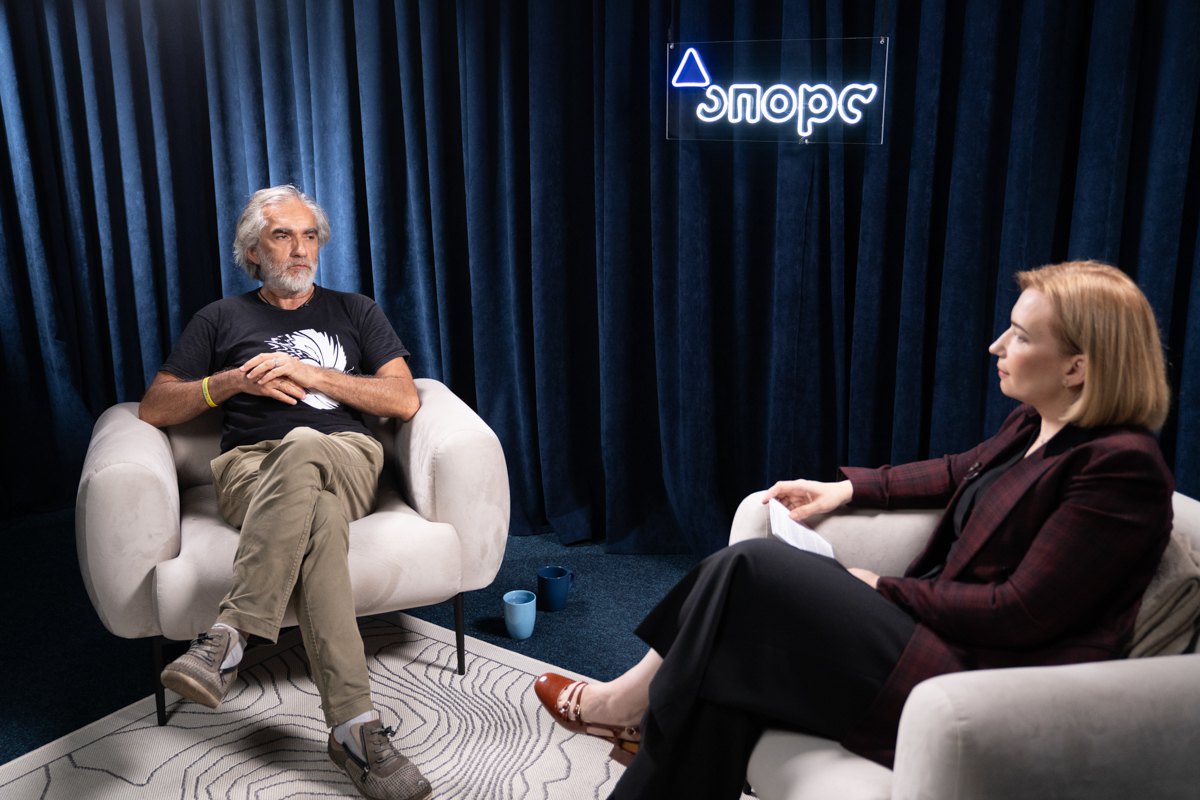
We are talking about Hitler in the 1930s, but Hitler would not have attacked if the Bolsheviks had not won in 1917, and they did not necessarily have to win, because after the February Revolution there were nine months of attempts to build a liberal European state in Russia. It was a clear programme to normalise, and it failed.
There have been several real attempts to create a normal European state in Russia. And these attempts never succeed. It seems that Russia does not have enough resources to reform itself. Therefore, something like what happened with Germany after the war is needed. Germany couldn't do it either; it happened under certain pressure.
"Ukraine's role now is to delegitimise Putin"
What scenario for transformation under external pressure from Russia is possible?
I do not believe that Russia can be captured; I do not see how this can be done. I do not believe that a parade on Red Square is possible. I believe that, with a very high probability, this regime will collapse. When — I cannot say, because collapse happens unexpectedly. Collapse will inevitably lead to Russia being in a state where power becomes weak again — and then pressure must be exerted on it.
We can see the weaknesses of this government: the autocratic tsar is forming a complete vertical structure, and this raises the problem of the transfer of power. Ukraine's role now is to delegitimise Putin. Ukraine is showing Russians that Russia is not as strong as it thinks it is, that it is not a superpower, and that Putin is not as effective a manager as he claims to be, because what was supposed to happen in three days has not happened in three years. The longer Ukraine remains in this war, the more Putin's authority is delegitimised.
How can we deal with the fact that fewer and fewer people in Ukraine believe in victory?
We need to figure out what victory means. During the first few months, there was a feeling that the war would end quickly and victoriously. These are exaggerated expectations that inevitably lead to disappointment. We need to have realistic expectations of what our victory means.
For me, the understanding of victory is quite simple, historical. It is a final exit from the "Russian world" — once and for all — and entry into another world that provides greater security guarantees, because Ukraine cannot exist on its own; it is too dangerous. And this will be a victory for Ukraine, a truly historic one, because we will leave the world we so recklessly entered 350 years ago.
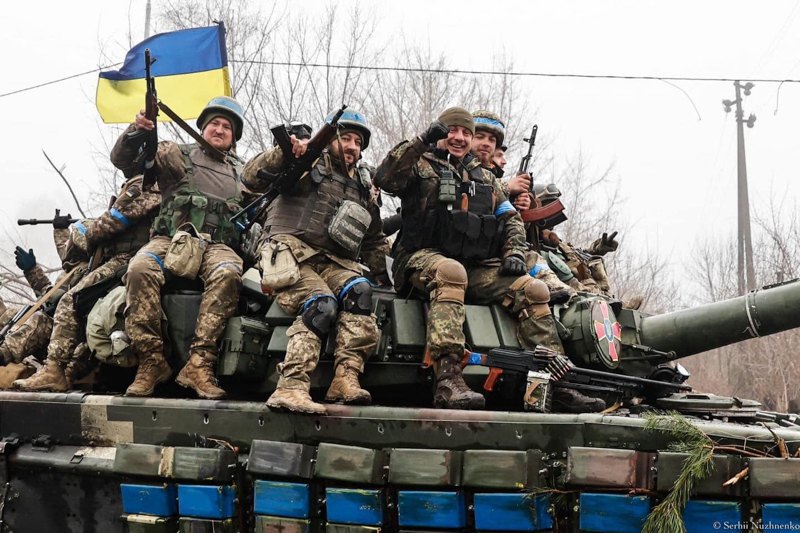
Given that religion is one of the components of belonging to the "Russian world," should we liberalise our approach to religion in order to break away completely?
I think so, perhaps. Orthodoxy is very diverse. At the Ukrainian Catholic University, in particular, we always say that there is a Kyiv Orthodoxy, which is different from the Russian one and quite Westernised. Under the influence of Catholic theology, in response to pressure, it was adopted and had more rational roots. It exists, it is different. And not only ideologically or dogmatically, it is very important that Kyiv Orthodoxy has never been state-sponsored, unlike the Russian Church, which is state-sponsored.
Our advantage is that we have several Orthodox or Eastern Christian churches, none of which are state churches. I think this is one of the reasons that make Ukraine very different from Russia.
If you have several centres of power competing with each other, you have a chance for an independent player to emerge. This is not the case in Russia, because the state and the church have merged into an unholy alliance, where they are one and the same. This has been the case historically.
Ukraine is and is not a European state. It is European because it is part of this sphere. We have adopted a great deal, a way of life, a way of thinking, and all sorts of other things. On the other hand, it is non-European because it has a completely different structure. In particular, because it was largely a border society.
We have a great deal of diversity. In this sense, Ukraine is very similar to the United States of America, because we do not have a single dominant denomination, but rather many, and they are able to coexist. This is not the Russian model; it clearly shows us to be different.
"Our level of readiness for consensus and agreement will depend on the duration and outcome of the war."
To construct a positive scenario for the development of the state, it is important to maintain unity and prevent divisions. What is the potential for our stability? What should public opinion focus on?
A study conducted by OPORA a year ago showed that the level of division in Ukraine is actually much smaller and weaker than we think.
I have a feeling that we have been exaggerating the divisions over the last thirty years. Yes, Ukrainians are capable of division, like everyone else, but so far, when we reach a situation on the brink of disaster, we sit down at the table and talk to each other consensually.
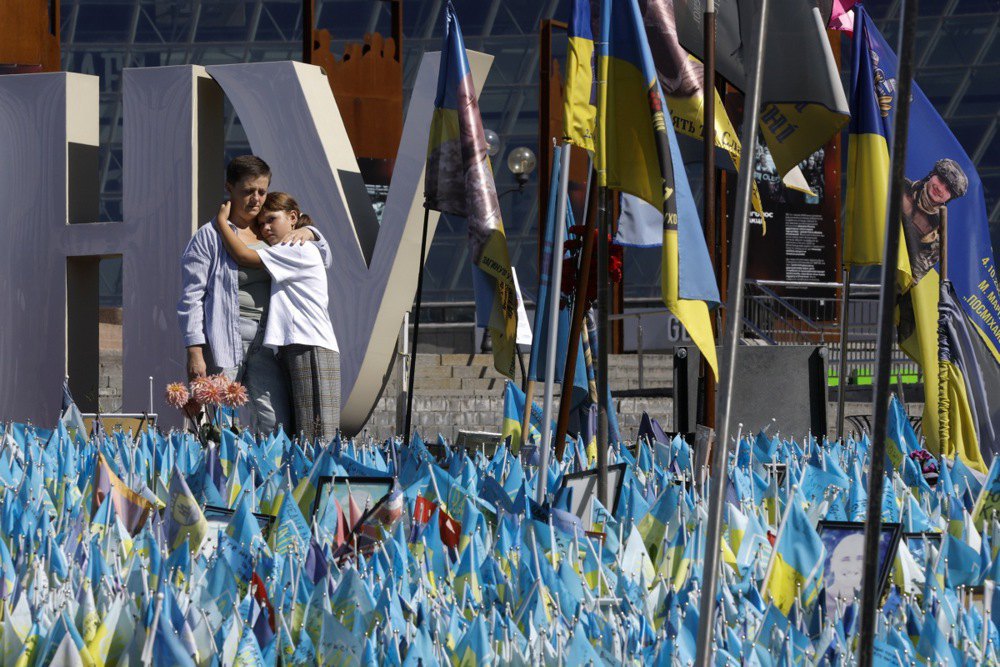
I am almost certain that our level of readiness [for consensus] and agreement will depend on the duration and outcome of the war. The question is how we can now formulate what the outcome of the war might be and what our victory should be. This is very important, because otherwise we will get bogged down in figuring out who is to blame. Then very strong divisions will begin.
For me, victory means joining the Western world, because that will resolve many issues. Firstly, it will resolve security issues, and secondly, it will also bring other economic standards of living. I want us to argue, but on a full stomach.
We understand that the economy will not start without political change. This means that we must continue to focus on completing or continuing certain key reforms during the war. The level of what we will argue about will depend on this.
I am very afraid that we will again switch to secondary issues instead of primary ones. I believe that certain points of discussion have disappeared because of the war. In particular, the issue of the status of the Russian language, which played a huge role ten to twenty years ago, has disappeared. This ability to switch to secondary processes, which I am talking about, is encouraged by Russia, which finds it important to raise these points of disagreement.
The key issues are the political reforms that are bringing us into the world. It is very important that public opinion shifts to these issues, rather than "figuring out" who is to blame.
For me, this means, first and foremost, the creation of a system of independent courts. I say this as a historian. The key to the Western system is the protection of your dignity, not just freedom of speech or the ability to speak your own language, etc. Dignity is a broader concept: everything that belongs to you, your property. Someone has to protect it, and you can only protect it if you have a system of oversight over the courts. We don't have that, which is why I keep repeating it.
"We must understand that peace is the exception, not the norm."
Do you see signs that the UN, created after World War II to replace the League of Nations, is becoming obsolete and that global reforms are coming?
We must understand that peace is the exception, not the norm. This structure deteriorates quite quickly, within two or three generations. This means that we have to reconstruct and review this structure every time. The longest-lasting structure in history was the Congress of Vienna. Created thanks to monarchs, it was quite successful: we lived without major wars for a hundred years.
The First League lasted twenty years, the UN 50–70 years, time for change.
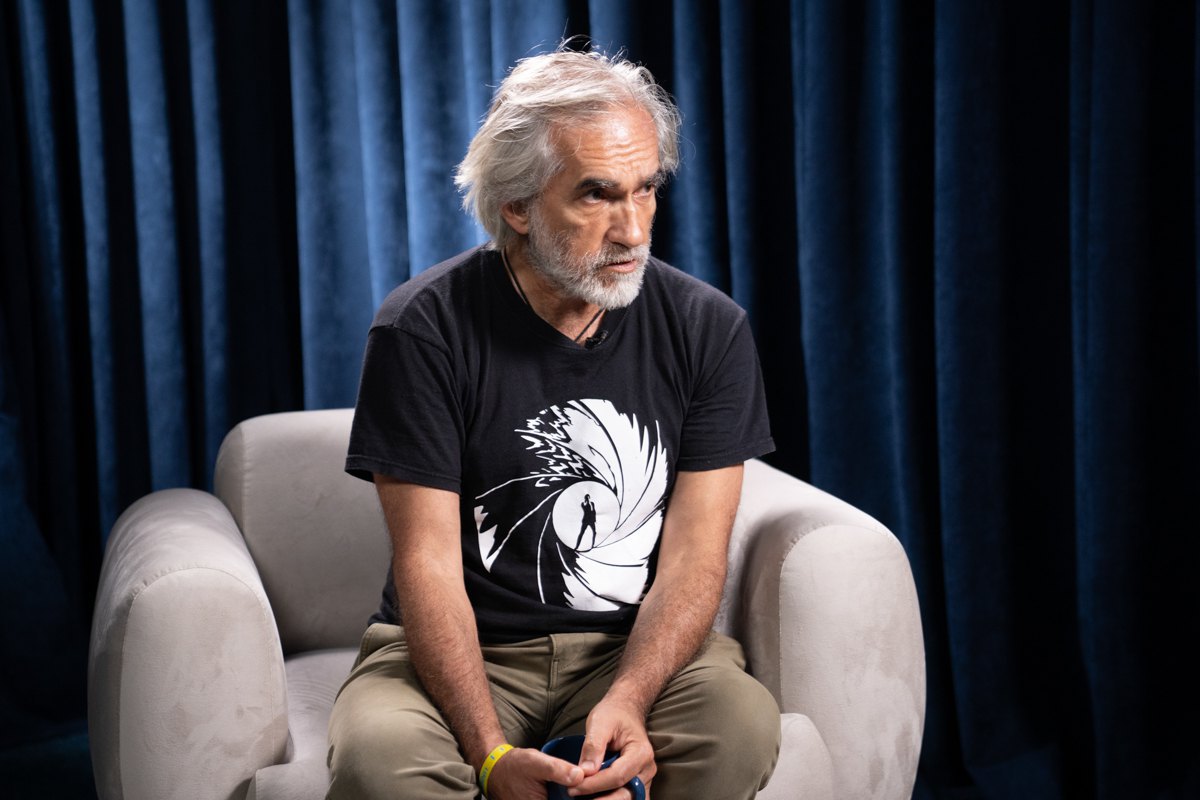
I believe that Europe has a huge number of problematic issues behind it, but Europe can talk about them, acknowledge them, reflect on them and criticise them. Russia and China cannot. Secondly, in the overall balance, Europe is a large, ambitious project to liberate new groups of people, and freedom is key to this. Europe does not do this in a linear fashion, but rather from crisis to crisis.
"Europe desperately needs a new crisis in order to become viable."
Is there a sense of crisis in Europe?
I think so. I don't know to what extent this is recognised. At least now, I think that Putin did not scare them, but Trump did. There was a feeling that they were protected. Trump is taking away that protection — they feel like a crab during moulting. The shell is gone, now anyone can swallow this structure.
The fact remains that Europe is developing from crisis to crisis. I wrote about this earlier. Europe desperately needs a new crisis in order to become viable.
The Ukrainian war is the crisis that Europe needed to bring itself into some new form.
Will Europe succeed? I don't know, but at least we see movement in that direction. Because we see completely different configurations now. We don't know if the European Union will remain as it was against the backdrop of the emergence of the Coalition of the Willing. This is a new project: countries that are developed but poorly protected, which understand that the Ukrainian question is key to the existence of this system. It is a structure that goes beyond the European Union, because it includes the United Kingdom, which has left the European Union, Canada, Japan, South Korea, and others. I don't know what will come of this. To a large extent, it depends on how much damage Trump manages to do, how this war ends, whether a war in Taiwan will start, and other factors. We are witnessing a turning point.
We are living as we did in the 1930s, when the League of Nations collapsed and the new [system] had not yet emerged, because there was not yet enough damage.
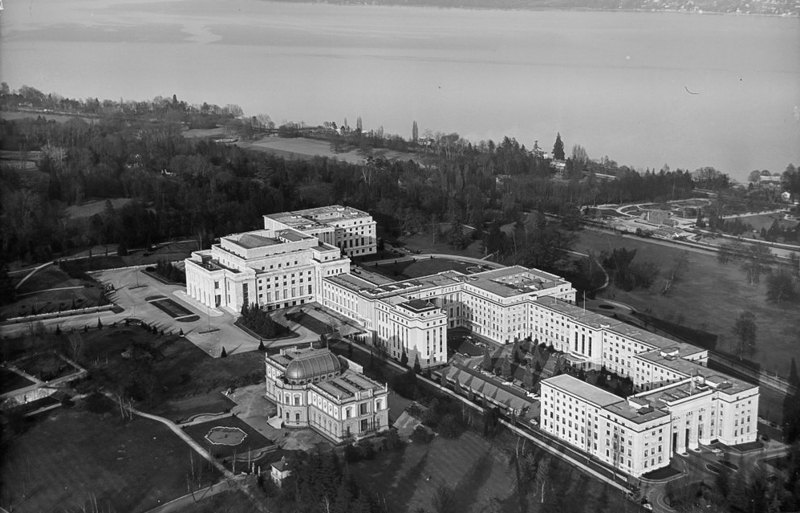
How would you describe the policies of Slovakia and Hungary from a historical perspective? Is it natural for them to elect leaders with such convictions, or can we hope for change, given that the latter is blocking Ukraine's accession to the EU?
Slovakia and Hungary are not homogeneous; there is Bratislava and the rest, there is Budapest and the rest. If the politics and fate of Slovakia and Hungary were decided by Bratislava and Budapest, we would have a more or less peaceful life. Two large cities, quite liberal.
I don't know why this is happening in Slovakia, but I can explain it by the fact that they have a sense of Russophilia. I was told that when Ukrainian refugees were passing through Slovakia during World War II, the Slovaks tried to convince them: why are you running away from the Russians, the Russians are so good. The Slovak movement was quite Russophile and Pan-Slavic, unlike the Czech one.
From a historical perspective, Hungary is a kind of Russia of Central Europe. Hungary had a sense of mission, and then its collapse due to the Treaty of Trianon (a peace treaty signed between the victorious powers of World War I and Hungary, which significantly reduced Hungary's territory by 77% and its population by 59%). This Trianon trauma is important; it is the incompatibility of ambitions with what actually is. I don't know how it will turn out. It looks like Orbán's government is now in danger of losing the election. He will fight, and we don't know if the new government will be much better towards Ukraine.
Fortunately, these are secondary or even tertiary countries in this system. It is important for us that we have Britain, Germany and France. This is a new triangle that we did not have before. Of course, it would be ideal if this triangle extended to Washington, which is not the case at the moment. Although there is an attempt. It would be ideal if Poland joined this triangle, but it is currently in a 50-50 situation.
Poland, unfortunately, or perhaps fortunately, is losing its role as Ukraine's advocate, and the centre is shifting further west. Previously, Poland was extremely important to us, our main ally in Europe. Now it is not, because new European allies have emerged.
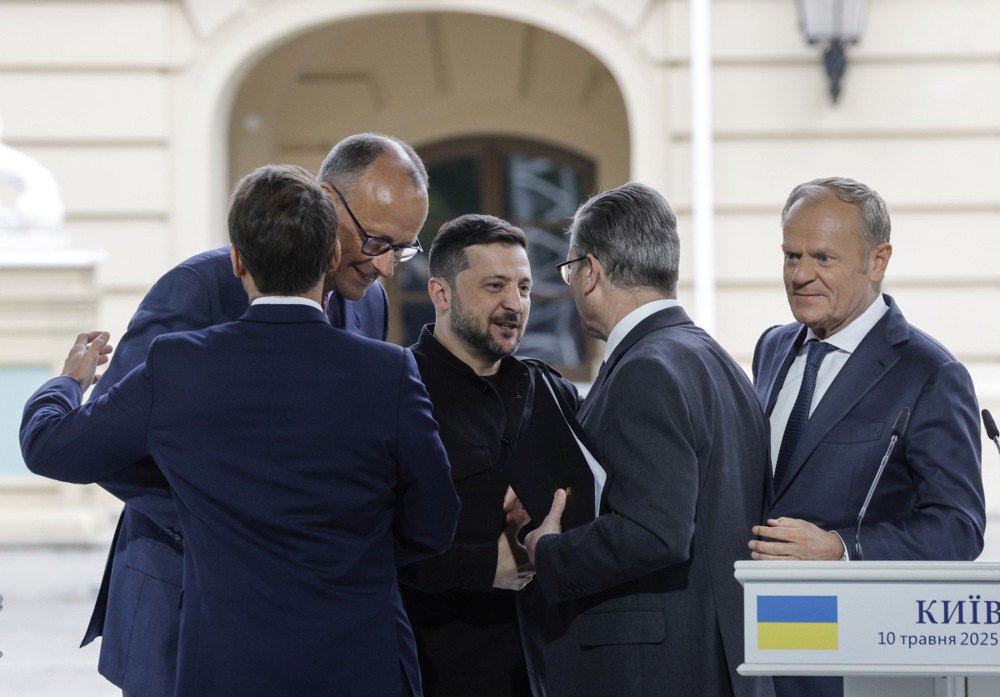
It is very important for us that our allies are no longer countries that are our closest neighbours, such as Slovakia, the Czech Republic and Moscow. These are the biggest European players: the Germans, the French and the British. Obviously, the Scandinavians are very important. This is something different, a configuration that did not exist before.
"Poland has become a victim of its own success"
Changes in the assessment of history in Poland became noticeable 15 years ago. The main historical tragedy in the media, discourse and communication was Katyn, but it became Volyn. Can you explain this colossal change?
I can try, but I don't know if I can, because there is no rational explanation. One of the best attempts is Kwaśniewski’s latest article in Ukrainska Pravda.
I think one of the mistakes is the noble but naive belief that historical facts speak for themselves, that whatever the myths may be, they cannot replace the facts. This turned out to be insufficient.
PiS created the Institute of National Remembrance, which began a policy similar to Russia's, the same discourse: we are being humiliated, we must restore our national dignity, our national greatness.
We remember that this happened after a major debate in Poland about Jedwabne, which was a huge trauma for Polish society. Let me remind you that Jedwabne is a town where local Polish residents brutally murdered their Jewish neighbours without the involvement of the Germans. This completely shattered the image of Poles as eternal victims and eternal heroes. It showed that real Poles were bandits. Then articles about the pogroms in Kielce came out. For Poles, this was a shock, something impossible. The discussion was very long, and it ended with both the president and the head of the Roman Catholic Church making a public apology, but this was the liberal wing. PiS said that this was untrue, that it was public humiliation. And this overlapped with another scheme.
The liberal part, which was very pro-Ukrainian, deliberately did not allow Volyn to come to the fore, constantly saying that there were more important matters. PiS included in this the idea that they were not silencing Volyn for no reason, that it was an element of our humiliation — this whole compensatory, diminished reaction. It's a very complex formula to explain, but there are even more complex things.
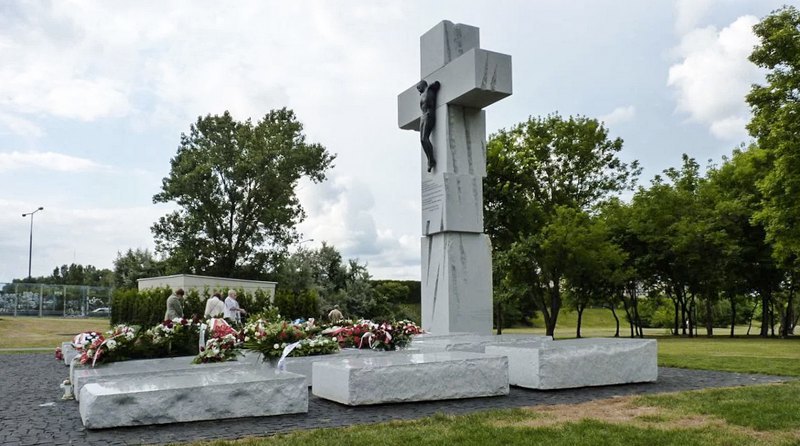
The key point is not Volyn, the key point is 1989, because the two parties competing with each other emerged from Solidarity.
PiS is the wing that believes that Poland emerged from communism incorrectly, that instead of negotiating a peaceful transition at the round table, the communists should have been punished, a Nuremberg trial should have been held, and so on.
The liberal faction, led by Wałęsa, Michnik, Kuroń, and all the others, believed that it was better for Poland to calmly and peacefully forgive the Polish communists in order to carry out reforms. It turned out that their position was successful. This made it possible not to focus on certain discussions and to carry out rapid economic and political reforms. We now forget that Poland is probably the most successful example of post-communist transformation.
Poland has become a victim of its own success. A significant portion of Poles have indeed become very wealthy as a result of the reforms. The country has changed dramatically. In principle, everyone has won, but in very different ways. Some have made careers and businesses, while many others have not benefited to the same extent. They feel abandoned and betrayed by the group of winners. The average Pole, Mr Yatsyk or Mr Kowalski, has lost out. The winners are the elite, who, in their opinion, are often too liberal, too Jewish, too pro-communist, too European, too pro-German, that is, foreign. They need some kind of compensation. Someone needs to come along who will defend the interests of the true Pole.
The bad thing about this situation is that this group includes a lot of young people. One of the main groups of voters not only for PiS and Nawrocki, but also for Menczen's party, is young men in their twenties and thirties. They believe that they have been deprived of the opportunities that their peers have. Figuratively speaking, this is revenge of the losers on the start-up entrepreneurs.
They need an explanation for their dignity. And Volyn fits the bill nicely. Volyn explains a lot.
In Poland, this is not a finished project, it is 50-50. Two camps are fighting fiercely with each other, and Ukraine has become a victim of this internal struggle. Sorry, but the "Volyn massacre" fits perfectly into the subject of this struggle.
Do you think there is no Russian influence on historical policy in Poland?
Obviously there is, but Russia would not be playing if there were no fertile ground. Russia is fanning the flames that are already smouldering.
Is the perception of Russia changing in Polish society?
Russia is not disappearing as an enemy. You will not find a single Pole who will say that Russia is a friend, unlike the Hungarians.
What is the average Kowalski talking about? He believes that Russia is the enemy, Germany is the enemy, Ukraine is the enemy, and the European Union is the enemy. But there is an ally — Trump. He will protect us. Why? Because Nawrocki goes to Trump and Trump protects him.
Poland is led by a historian, the former head of the Institute of National Remembrance. Will we be able to distance ourselves from the political and historical discourse? How do you see the further development of Ukrainian-Polish relations?
Just as you cannot make a KGB agent president, I would say: "Prohibit historians from holding leadership positions."
Keep in mind that when a politician uses history, it is very dangerous, especially if that politician is not of the best kind.
Because he is a professional historian, but not one that I would talk to at a scientific conference. He is a very applied historian, more of an ideologist and propagandist than a historian.
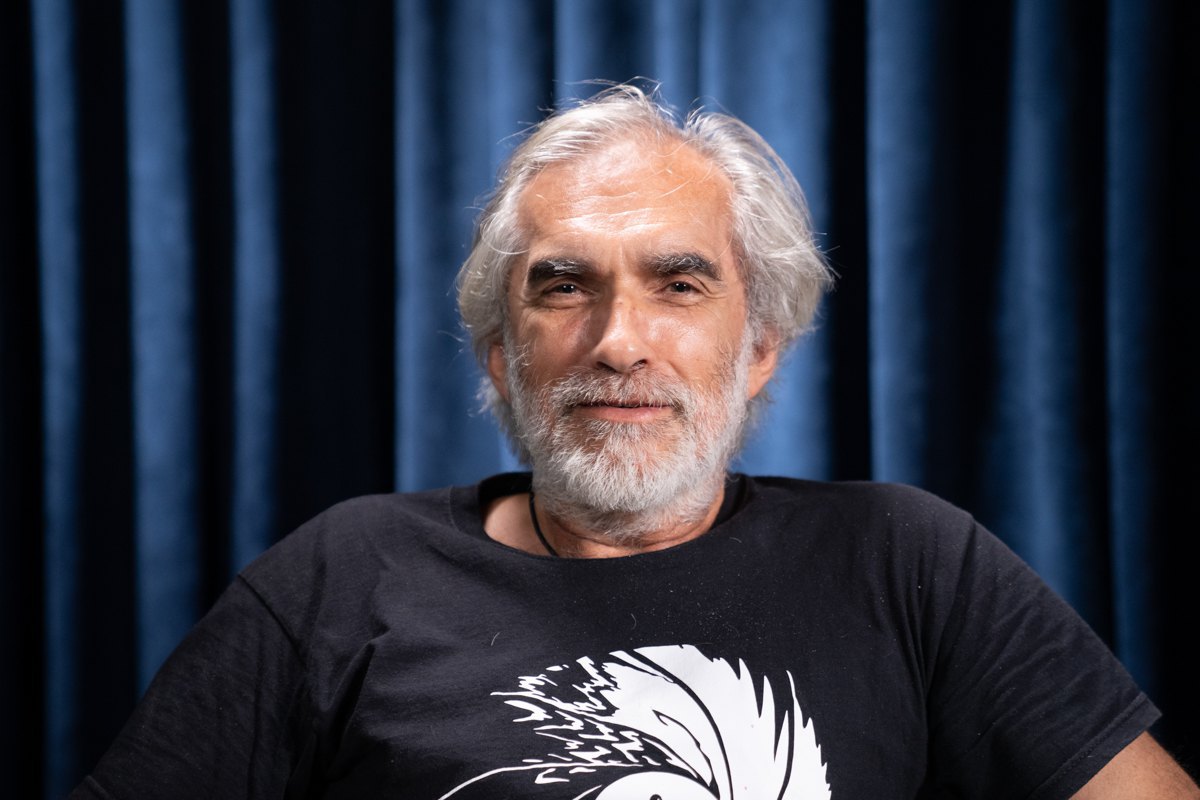
Is there a chance? I don't know. Just as the "Volyn massacre" appeared, it may disappear, perhaps shifting focus to something else.
Karol Nawrocki is the new president of Poland.
One way or another, we have to work with Poland, just as we have no chance of ignoring Trump and America.
I think we are lucky with Sikorski. He is the Minister of Internal Affairs, who is pro-Ukrainian to the point of indecency. Sikorski is very important, Tusk — they talk to other leaders.
I am not afraid that there will be a consistent, aggressive anti-Ukrainian policy, but rather a game. At least that is what Kwaśniewski says. He cannot imagine that Nawrocki will deliberately block Ukraine's accession [to the European Union].
"Russia really believes that Ukrainian nationalists are enemy number one, and it will kill them on principle."
I cannot help but ask about the murder of Andriy Parubiy. Do you see any parallels between the recruitment of players of Ukrainian origin or with Ukrainian passports who act according to the Russian scenario, using the tools that the KGB used from the 1940s until the collapse of the Soviet Union?
If Ukrainians number in the tens of millions, it is difficult to hope that there will not be at least dozens or hundreds of people who are ready to carry out the mission that Stashynskiy (a Soviet spy, KGB agent, and killer of Ukrainian nationalist leaders Lev Rebet and Stepan Bandera) or the current killer did.
Russia remembers all nationalists and "their guilt." Russia truly believes that Ukrainian nationalists are enemy number one, and it will kill them on principle. Even if they are not active and are politically retired.
This is unforgivable. It doesn't matter who you are now, you must be destroyed, because this is a message for the future. Russia thinks that Ukrainian nationalists are the main problem: if they are eliminated, the rest can be managed more or less peacefully. No, because Ukrainian nationalism is a much broader concept in Ukraine than these people.
In Europe, they believe that concepts such as "nationalism" and "homeland" are bad — they are a justification for Nazism. Now in Europe, as a historian, I know that more and more voices are speaking out against this, because the concept of "nationalism" in Europe has fallen victim to Nazism.
We must talk about Ukrainian civic nationalism as something very positive, as hope for the future of Europe.








